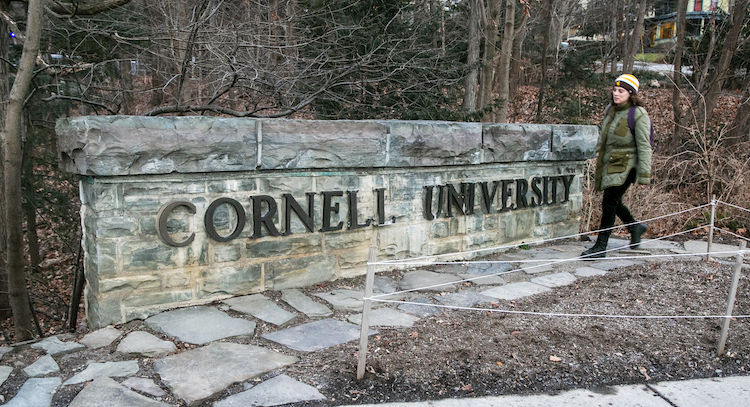Amid the flurry of agitated headlines and stories about the Trump administration’s supposed crackdown on immigrants’ “pro-Palestinian speech,” the case of Momodou Taal is a cautionary tale.
Taal, a graduate student at Cornell, announced yesterday that he is giving up his legal fight to stay in the country. Taal’s case was probably the one with the biggest gap between the reporting and the reality, and his deportation holds an important lesson for those inclined to take anti-Zionist activists at their word.
The case against Taal was clear-cut, and Taal’s legal challenge was cynical, dishonest, and frivolous. Moreover, Taal sought not only to keep his visa but to legally cancel much or all of Trump’s executive order combating anti-Semitism. Even if successful, Taal’s challenge to the order would not have changed immigration law. So it was merely a gratuitous attempt to unravel the civil rights of Jews on campus. And yet, he was painted in a sympathetic light by journalists and activists whose aims aligned with Taal’s.
Let’s start at the beginning. In the spring of 2024, students constructed a Hamas-inspired tent encampment on a disallowed quad. They had deliberately misled the school by “indicat[ing] there would not be any tents” in their protest. Despite their dishonesty, the tentifada activists were offered another area in which to set up their anti-Israel protest tents. They refused the offer.
Momodou Taal was among the leaders of the group. He and the others were warned that if they did not move their tentifada to the approved area, students would be subject to disciplinary action including suspension. Taal was therefore suspended.
None of this so far reflects well on Taal or poorly on Cornell. But Taal was on a student visa, which meant this suspension was a warning he’d have to take seriously: another suspension would almost certainly mean the revocation of his visa.
Knowing this, Taal helped lead a protest a few months later in which his group of pro-Hamas activists shoved past police guarding a career fair for students and began deconstructing exhibits and banging pots and pans. The group broke school safety rules and, of course, there is the matter of assault and trespassing. So Taal was suspended again. This triggered his visa cancellation.
Incredibly, the school made an absurdly magnanimous gesture after Taal appealed his suspension. Interim Provost John Siliciano decided to bar Taal from campus but let him do dissertation work remotely, thus reinstating his academic participation and allowing him to keep his visa.
In this way, Taal was part of another pattern: Contrary to the prevailing narrative, foreign students—especially those participating in the Hamas solidarity camps—have been given special treatment that has not generally been made available to U.S. students. Schools have not wanted to cause foreign students to be deported, so they have bent the rules for them to help them avoid the strict consequences of their lawlessness. This happened earlier in the protest movement at MIT as well. These students were given wider latitude to break rules because they are foreign students.
Taal’s sympathies for Hamas aren’t in question. His response to the Oct. 7, 2023 massacres and sexual violence carried out by Hamas against innocent Israelis was to tweet “Glory to the resistance!” alongside a Palestinian flag. He also wrote “Today has shown us what is possible when you are organized.” The pogrom appears to have made him very happy.
Because Taal reveled in the attention from his Hamasnik activism, and because he had already proved himself a good candidate for deportation, there wasn’t much doubt he’d be held responsible for his actions by the Trump administration. And so his visa was revoked, again, finally.
This is where Taal’s behavior gets uniquely obnoxious. He sued the Trump administration to undo the anti-Semitism executive order and to stop his deportation. He did so after his visa was revoked. The judge in Taal’s initial hearing was perplexed. “Any future harm alleged in their affidavits appears to be speculative and even moot because of the revocation of Taal’s visa,” the judge said.
Contrary to some reporting, he was not punished for suing the Trump administration; he sued the Trump administration in a partially successful attempt to fool reporters and activists into misleading the public.
Seeing the writing on the wall, Taal announced yesterday that he was self-deporting.
Taal’s statement is self-pitying and remarkably dishonest, even for Taal. He lied about the entire affair and whined about having to listen “ad nauseum” to the safety concerns of “Zionist students.” He signed off with “long live the student intifada.”
There is no moral defense of Taal or his actions or what he was asking the courts to do. And those who instinctively jumped to his defense ought to engage in some self-reflection.


















